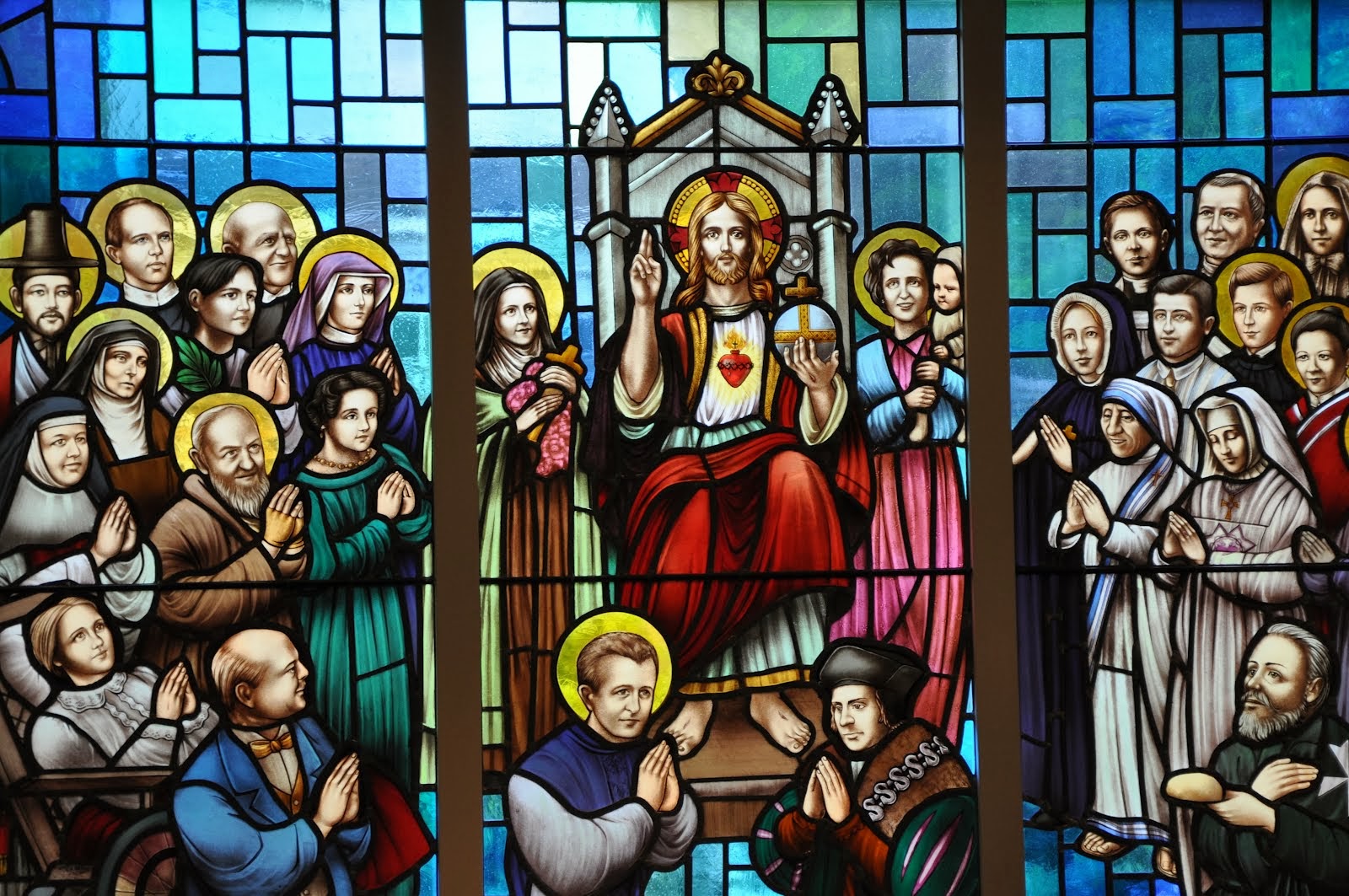
“God speaks by the mouth of Malachi, one of the twelve [minor prophets], as I said before, about the sacrifices at that time presented by you: ‘I have no pleasure in you, says the Lord, and I will not accept your sacrifices at your hands; for from the rising of the sun to the going down of the same, My Name has been glorified among the Gentiles, and in every place incense is offered to My Name, and a pure offering, for My Name is great among the Gentiles’. He then speaks of those Gentiles, namely us, who in every place offer sacrifices to Him, that is, the bread of the Eucharist and also the cup of the Eucharist.” St. Justin Martyr (2nd century)
“The bread and the wine of the Eucharist before the holy invocation of the adorable Trinity were simple bread and wine, but the invocation having been made, the bread becomes the Body of Christ and the wine the Blood of Christ…[being] fully convinced that the apparent bread is not bread, even though It is sensible to the taste, but the Body of Christ, and that the apparent wine is not wine, even though the taste would have it so,…partake of that Bread as something spiritual, and put a cheerful face on your soul.” St. Cyril of Jerusalem (4th century, Doctor of the Church)
“I promised you who have now been baptized a sermon in which I would explain the Sacrament of the Lord’s Table, which you now look upon and of which you last night were made participants. You ought to know that you have received, what you are going to receive, and what you ought to receive daily. That Bread which you see on the altar, having been sanctified by the Word of God, is the Body of Christ. That chalice, or rather, what is in that chalice, having been sanctified by the Word of God, is the Blood of Christ…What you see is the bread and the chalice; that is what your own eyes report to you. But what your faith obliges you to accept is that the bread is the Body of Christ and the chalice is the Blood of Christ. This has been said very briefly, which may perhaps be sufficient for faith; yet faith does not desire instruction.” St. Augustine of Hippo (4th-5th centuries, Doctor of the Church)
“Away, then, with all the equivocation of the infidels, since the Author of the gift is also the One Who guarantees its truth. For a visible priest in virtue of a secret power converts by His own words visible elements into His Body and Blood saying, ‘Take and eat: this is My Body,’ and continuing the consecration, ‘Drink of this: this is My Blood’. Accordingly, just as at the Lord’s behest the lofty heavens, the depths of the sea and the expanses of the earth were suddenly created out of nothing, so by the same divine omnipotence in the spiritual words of the Sacrament His power is revealed and reality obeys it.” St. Faustus of Riez (5th century)
“O table of the infinite God! The many marvels of this Feast amaze the mind: It is luscious beyond all dainties, delicious beyond the rarest delicacies, more fragrant than any odor, more pleasing than any form of grace, more desirable than every other food.” St. Thomas Aquinas (13th century, Doctor of the Church)
“There is no action in which we can think of our Savior as more tender or more loving than this, in which He, as it were, annihilates Himself, and reduces Himself to food, in order to unite Himself to the hearts of His faithful.” St. Francis de Sales (16th-17th centuries, Doctor of the Church)
“Grieve over the contempt cast upon Jesus Christ in the Blessed Sacrament, and try to make amends for it by a greater and more ardent love.” St. John Vianney (18th-19th centuries)
“Something that has particularly characterized our age is what might be called ‘de-eucharistization’, a decline in the love of the Eucharist. It started when some theologians, completely misunderstanding the Vatican Council [II], felt that there was no such thing as the Presence of Christ in the Sacrament and even cast some doubt on the value of it. So we suffer from what the whole world is suffering…Sociologists tell us that family life and relationships between people have very much degenerated…Maybe the grossness of our carnal age has made us put less stress upon those common courtesies and urbanities which make up life…the manifestation of love has gone into decline. And it leads to a decline in the spiritual order. We have become poor lovers of God.” Ven. Fulton Sheen (19th-20th centuries)
“Oh Blessed Host, enchantment of all heaven, though Your beauty be veiled and captured in a crumb of bread, strong faith tears away that veil.” St. Faustina Kowalska (20th century)
